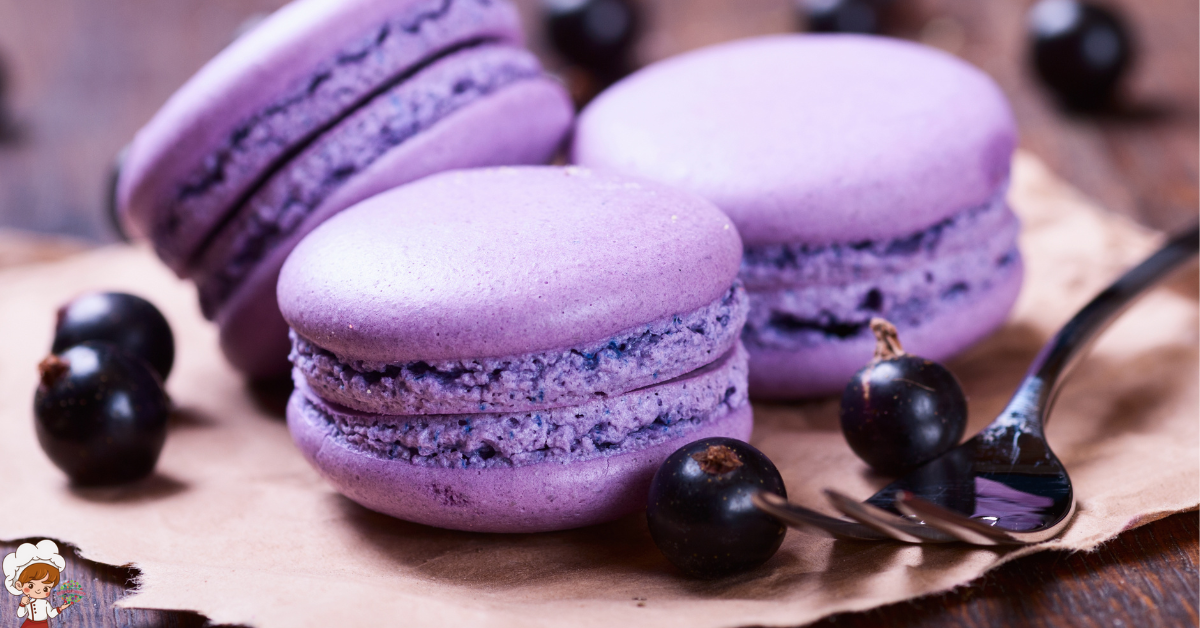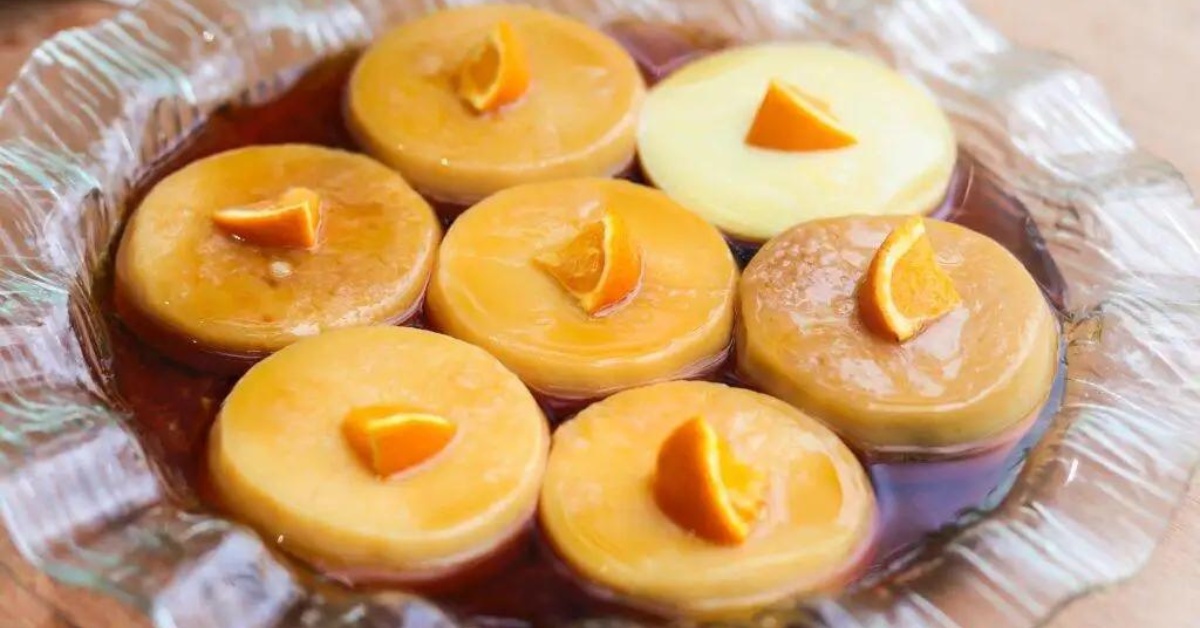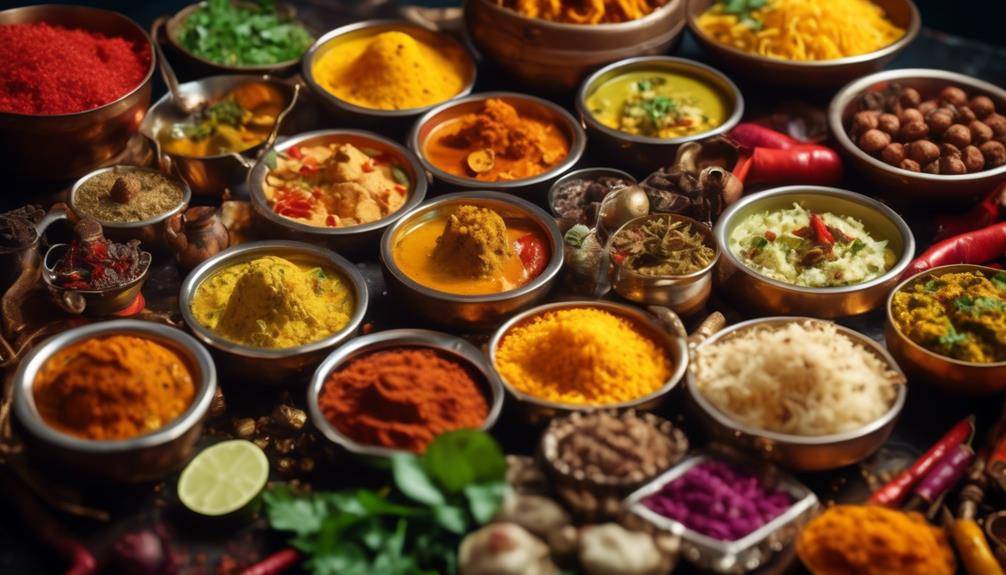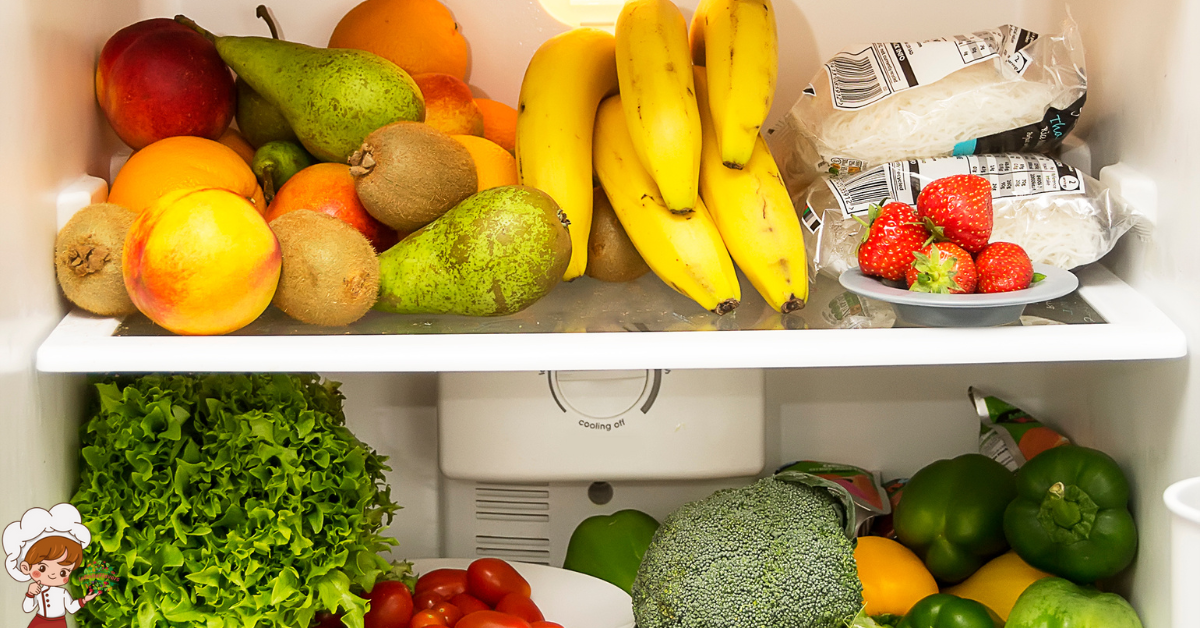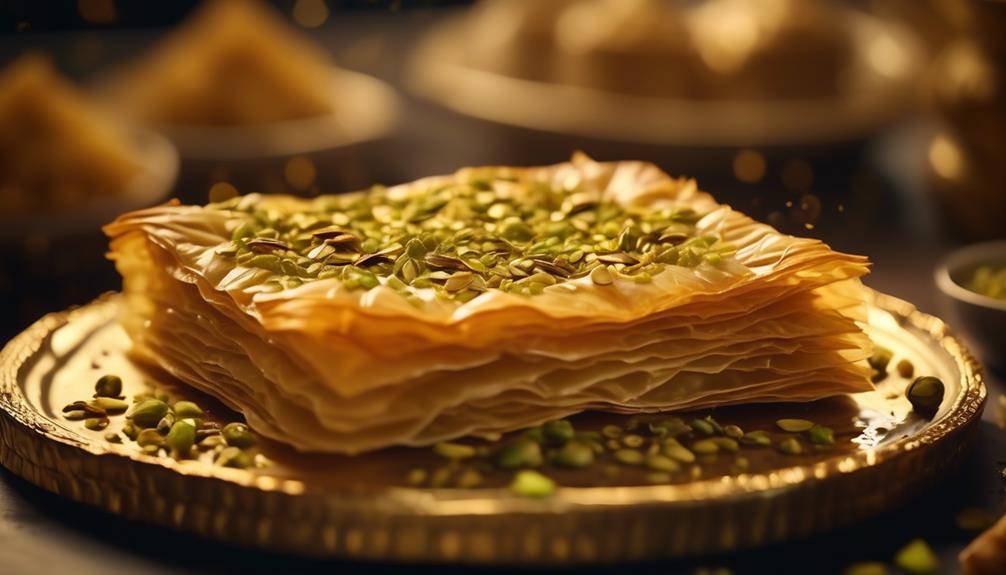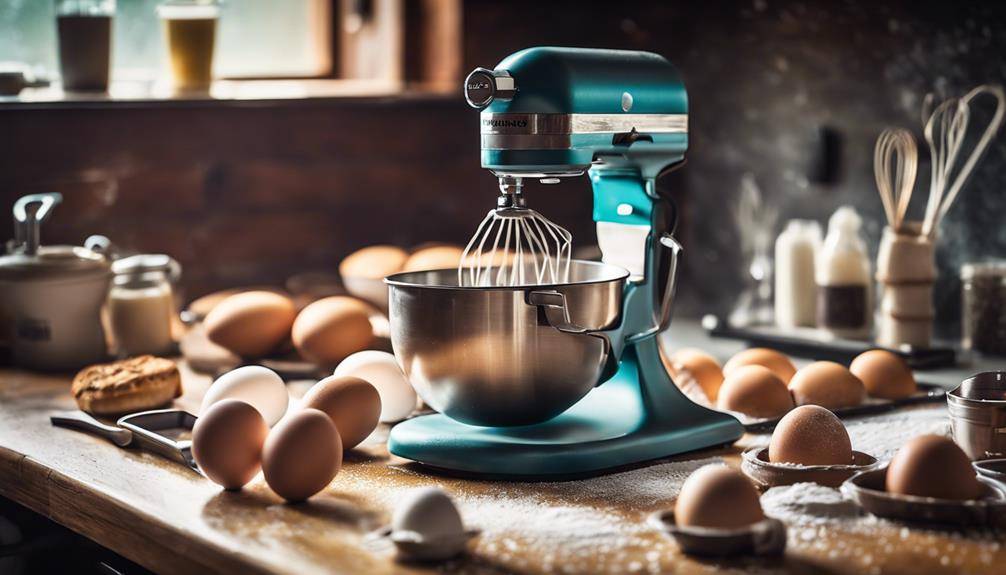8 Best Tips to Transition From Novice to Pro Chef
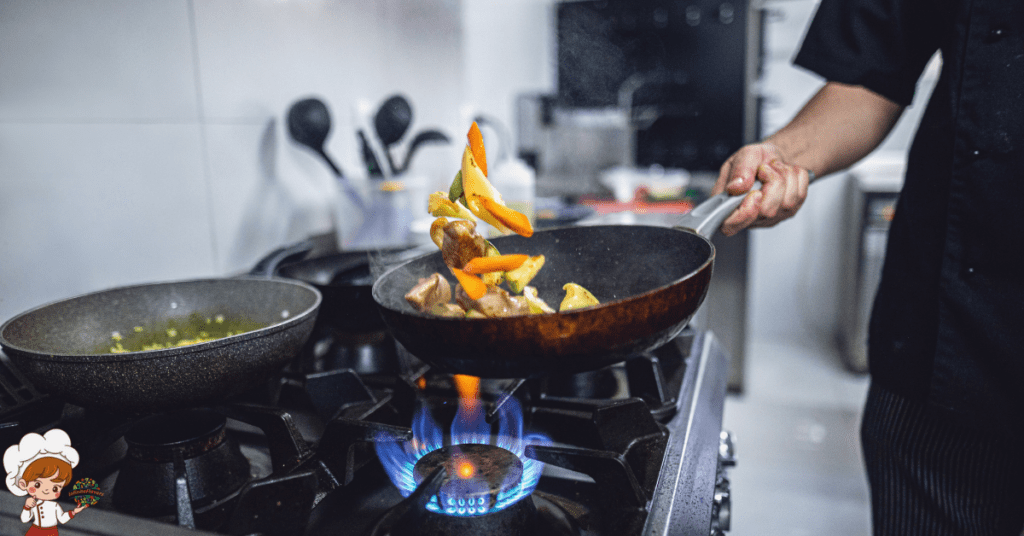
8 Best Tips to Transition From Novice to Pro; Are you ready to elevate your cooking skills and become a pro chef? Look no further! In this guide, we will provide you with the 8 best tips to help you transition from a novice to a professional in the kitchen. From mastering basic knife skills to understanding the importance of mise en place, each tip is designed to enhance your culinary expertise. You’ll also learn to properly season your dishes, experiment with different cooking techniques, and expand your knowledge through research and education. Don’t forget to practice plating and presentation techniques, develop your palate through tasting and analyzing flavors, and gain valuable experience through internships or apprenticeships. Let’s embark on this exciting culinary journey together!
Master Basic Knife Skills
To master basic knife skills, start by holding the knife with a firm grip and positioning your fingers away from the blade. Knife maintenance and safety are crucial aspects that every aspiring chef should focus on. A sharp and well-maintained knife not only ensures precise and efficient cutting but also minimizes the risk of accidents.
Proper knife maintenance is essential to keep your blades in optimal condition. Regularly sharpening your knives is important to maintain their sharpness. Invest in a high-quality sharpening stone or honing rod to keep the blade edges aligned and sharp. Additionally, make sure to clean and dry your knives immediately after use to prevent corrosion and rust. Hand wash your knives with mild soap and warm water, and dry them thoroughly before storing them in a knife block or sheath.
Knife safety is paramount when working in the kitchen. Always use a cutting board to protect your countertops and prevent the blade from slipping. Avoid cutting towards yourself and keep your fingers curled under to maintain a safe distance from the blade. When not in use, store your knives properly to prevent accidental cuts. Never leave them lying around or toss them in a drawer where they can easily cause harm.
Learn to Properly Season Your Dishes
When it comes to seasoning your dishes, understanding the difference between salt and seasoning blends is crucial. While salt enhances the natural flavors of your ingredients, seasoning blends add depth and complexity to your dishes. Balancing flavors with precision is also key, as too much or too little seasoning can throw off the entire dish. By mastering the art of proper seasoning, you’ll elevate your cooking to a professional level.
Salt Vs Seasoning Blends
As you progress in your culinary journey, understanding the distinction between salt and seasoning blends becomes crucial for properly seasoning your dishes. While both salt and seasoning blends add flavor to your food, they have different characteristics and uses. Salt, composed of sodium chloride, is a mineral that enhances the taste of ingredients and brings out their natural flavors. On the other hand, seasoning blends are a combination of various herbs, spices, and other ingredients, carefully blended to create a specific flavor profile. They can add depth and complexity to your dishes. When it comes to seasoning substitutions, salt is often the key ingredient that cannot be replaced, as it plays a fundamental role in flavor development. However, seasoning blends can be substituted with individual spices or herbs to achieve a similar flavor. It’s important to note that excessive salt consumption can have negative health effects, such as high blood pressure. Therefore, it is recommended to use seasoning blends with lower sodium content or opt for natural herbs and spices to enhance the taste of your dishes while also reaping their health benefits.
Balancing Flavors With Precision
Master the art of properly seasoning your dishes to achieve the perfect balance of flavors. Seasoning is not just about adding salt and pepper; it’s about understanding how different flavors work together and how to bring out the best in each ingredient. Here are four tips to help you master the art of flavor pairing and balancing:
- Taste as you go: Don’t be afraid to taste your dish as you cook. This will help you adjust the seasoning and make sure the flavors are balanced.
- Use a variety of seasonings: Experiment with different herbs, spices, and condiments to add depth and complexity to your dishes. Don’t be afraid to mix and match flavors to create unique combinations.
- Consider the dish as a whole: When seasoning your dishes, think about how each ingredient contributes to the overall flavor profile. Balance sweet and savory, acidic and rich, and spicy and mild flavors to create a harmonious dish.
- Don’t forget about texture: Seasoning isn’t just about taste; it’s also about texture. Consider how different seasonings can add crunch, creaminess, or juiciness to your dishes.
Understand the Importance of Mise En Place
To become a professional chef, it is essential that you grasp the significance of mise en place. Mise en place, a French term meaning “everything in its place,” is the cornerstone of culinary organization and proper ingredient preparation. It is the practice of gathering and arranging all the necessary ingredients, utensils, and equipment before starting to cook.
The importance of organization cannot be overstated when it comes to mise en place. By ensuring that everything is organized and readily accessible, you can save valuable time and avoid unnecessary stress during the cooking process. Imagine trying to chop vegetables while searching for a missing ingredient or scrambling to find the right pan amidst a cluttered workspace. It not only disrupts your flow but also affects the quality and consistency of your dishes.
Proper ingredient preparation is another crucial aspect of mise en place. It involves washing, peeling, slicing, and measuring ingredients before you start cooking. By doing this, you can focus on the cooking techniques and flavor combinations without worrying about the tedious prep work. Additionally, when ingredients are uniformly prepared, they cook evenly, enhancing the overall presentation and taste of the dish.
Mise en place is more than just a culinary technique; it is a mindset that separates amateurs from professionals. It allows you to approach cooking with confidence and precision, knowing that you have everything you need within arm’s reach. So, take the time to organize your workstation, gather your ingredients, and prepare them properly before you begin cooking. By doing so, you will elevate your culinary skills and transition from a novice to a pro chef in no time.
Experiment With Different Cooking Techniques
To truly elevate your culinary skills and transition from a novice to a pro chef, it is essential to experiment with different cooking techniques. By expanding your culinary skill set and mastering new cooking methods, you will be able to create a diverse range of flavors, textures, and presentations in your dishes. Whether it’s sautéing, braising, grilling, or baking, each technique offers unique opportunities to enhance the taste and visual appeal of your creations.
Expanding Culinary Skill Set
To expand your culinary skill set and transition from novice to pro chef, you must experiment with different cooking techniques. This will not only enhance your cooking abilities but also allow you to create unique and delicious dishes. Here are four cooking techniques you should explore:
- Sous Vide: This technique involves cooking food in a vacuum-sealed bag at a precise temperature, resulting in tender and perfectly cooked meals.
- Fermentation: By fermenting ingredients like vegetables or dairy, you can add complex flavors and textures to your dishes. Try making your own sauerkraut or yogurt to expand your recipe repertoire.
- Smoking: Smoking food adds a rich and smoky flavor. Experiment with different types of wood chips and meats to create mouthwatering barbecue dishes.
- Molecular Gastronomy: This modern cooking technique involves manipulating food textures and flavors using scientific principles. Explore techniques like spherification or foams to create visually stunning and innovative dishes.
Mastering New Cooking Methods
Expand your culinary skill set and become a pro chef by experimenting with different cooking techniques. Mastering grilling techniques and perfecting baking methods are essential for any aspiring chef. Grilling is not just about throwing meat on a hot grill; it requires finesse and attention to detail. Learn how to control the heat, create beautiful grill marks, and achieve the perfect level of doneness. Experiment with different marinades, rubs, and techniques to enhance the flavors and textures of your grilled dishes. Similarly, baking requires precision and understanding of the science behind it. Learn how to properly measure ingredients, understand the role of different ingredients, and master the art of temperature control. Experiment with different baking methods, such as creaming, folding, and kneading, to create delicious breads, pastries, and desserts. With practice and dedication, you can become a master of these cooking techniques and elevate your culinary skills to a professional level.
Expand Your Culinary Knowledge Through Research and Education
Start broadening your culinary knowledge through research and education. By taking advantage of the vast amount of information available, you can enhance your skills and become a more accomplished chef. Here are four ways to expand your culinary knowledge:
- Research Benefits: Conducting research allows you to uncover new cooking techniques, ingredients, and flavor combinations. Whether it’s exploring different cuisines or studying the science behind cooking, research provides valuable insights that can elevate your culinary creations. By staying updated on the latest trends and innovations in the culinary world, you can continuously improve your skills and stay ahead of the curve.
- Educational Resources: There are numerous educational resources available to aspiring chefs. Online platforms offer cooking classes, tutorials, and demonstrations by renowned chefs. These resources provide step-by-step instructions and valuable tips to help you refine your culinary techniques. Additionally, culinary schools and workshops offer hands-on training and mentorship from industry professionals. Taking advantage of these resources can provide you with a solid foundation and help you develop advanced culinary skills.
- Cookbooks and Food Literature: Expand your culinary knowledge by immersing yourself in cookbooks and food literature. These resources not only provide delicious recipes but also delve into the history, culture, and techniques behind different cuisines. By reading books written by experienced chefs and food experts, you can gain a deeper understanding of the culinary world and broaden your repertoire.
- Attending Culinary Events and Workshops: Participating in culinary events and workshops can expose you to new ideas, trends, and techniques. These events often feature live demonstrations, tastings, and networking opportunities with industry professionals. By attending such events, you can expand your culinary network, learn from seasoned chefs, and gain practical knowledge that can take your cooking skills to the next level.
Broadening your culinary knowledge through research and education is essential for becoming a professional chef. By utilizing research benefits, educational resources, cookbooks, and attending culinary events, you can continuously improve your skills and stay passionate about the culinary arts.
Practice Plating and Presentation Techniques
Enhance your culinary skills by honing your plating and presentation techniques. Practicing plating techniques and enhancing presentation skills are crucial for any aspiring chef looking to make a mark in the culinary world. The way a dish is presented can elevate the dining experience and leave a lasting impression on your guests.
When practicing plating techniques, it’s essential to consider the overall composition of the dish. Start by visualizing how you want the final plate to look. Take into account the colors, textures, and shapes of the ingredients. Experiment with different arrangements and placements to create balance and harmony on the plate. Remember, a well-plated dish should be visually appealing and appetizing.
To enhance your presentation skills, pay attention to the small details. Cleanliness and precision are key. Ensure that the plate is clean and free from any smudges or spills. Use garnishes, such as fresh herbs or edible flowers, to add a pop of color and freshness to the dish. Consider the size and shape of the serving vessel, as it can significantly impact the visual appeal of the final presentation.
Furthermore, practice portion control to ensure that each plate is consistent and visually appealing. Pay attention to the distribution of ingredients and make sure they are evenly spaced and arranged. Use tools like squeeze bottles or piping bags to create elegant swirls or precise lines of sauce on the plate.
Develop Your Palate Through Tasting and Analyzing Flavors
Refine your palate by actively tasting and analyzing flavors. Developing a discerning palate is essential for any aspiring chef. By honing your ability to taste and analyze flavors, you will be able to create more complex and balanced dishes that will impress even the most discerning of palates. Here are some tasting techniques and flavor analysis tips to help you on your journey to becoming a pro chef:
- Taste mindfully: When sampling different ingredients or dishes, pay attention to the flavors that are present. Take small bites and let the flavors coat your palate. Observe the taste, texture, and aroma of each component.
- Use a flavor wheel: A flavor wheel is a helpful tool that can assist you in identifying and categorizing different flavors. By familiarizing yourself with the various flavor profiles, you will be able to better analyze and replicate them in your own creations.
- Experiment with pairings: To enhance your understanding of flavors, try pairing different ingredients together. This will allow you to explore how certain flavors complement or contrast with each other. Take note of the balance and harmony achieved in each combination.
- Seek feedback: Don’t be afraid to seek feedback from others when tasting your dishes. This can include fellow chefs, friends, or even customers. Their input can provide valuable insights and help you refine your palate further.
Gain Experience Through Internships or Apprenticeships
To become a professional chef, you can acquire valuable experience by participating in internships or apprenticeships. These opportunities provide you with the chance to gain practical experience in a professional kitchen environment, build industry connections, and learn from seasoned chefs.
Internships and apprenticeships offer hands-on training and allow you to apply the culinary skills you have learned in a real-world setting. You will have the opportunity to work alongside experienced chefs, observe their techniques, and learn from their expertise. Through these experiences, you will gain a deeper understanding of various cooking methods, flavor combinations, and the overall operation of a professional kitchen.
One of the major benefits of internships and apprenticeships is the opportunity to build industry connections. Working in a professional kitchen exposes you to a network of experienced chefs, restaurant owners, and industry professionals. These connections can provide valuable mentorship, career guidance, and potential job opportunities. By demonstrating your dedication, skills, and passion during your internship or apprenticeship, you may secure a job offer or recommendation that can launch your career as a professional chef.
It is important to approach internships and apprenticeships with a proactive mindset. Take initiative, ask questions, and seek opportunities to learn and grow. Show your enthusiasm, work ethic, and willingness to take on new challenges. This will not only help you make a positive impression on your mentors but also demonstrate your commitment to becoming a professional chef.
Frequently Asked Questions: 8 Best Tips to Transition From Novice to Pro
How Can I Effectively Organize My Kitchen to Ensure a Smooth Cooking Process?
To effectively organize your kitchen and ensure a smooth cooking process, start by decluttering and arranging your tools and ingredients in a logical manner. Utilize storage solutions, label containers, and keep frequently used items within easy reach. Plan your meals ahead and prep ingredients in advance for cooking process efficiency.
What Are Some Common Mistakes to Avoid When Seasoning Dishes?
When seasoning dishes, common mistakes to avoid include oversalting, under-seasoning, inconsistent seasoning, and using expired spices. Remember to taste as you go, start with a small amount, and adjust gradually.
Are There Any Specific Online Resources or Educational Programs You Recommend for Expanding Culinary Knowledge?
When it comes to expanding your culinary knowledge, online cooking classes and culinary schools are excellent resources. They offer a range of courses and programs that can help you develop the skills and expertise needed to become a professional chef.
How Can I Improve My Ability to Analyze Flavors and Develop a More Refined Palate?
To improve your ability to analyze flavors and develop a refined palate, focus on developing your taste buds by trying a wide variety of foods. Enhance your food pairing skills by experimenting with different flavor combinations.
What Are Some Tips for Creating Visually Appealing and Artistic Plate Presentations?
To create visually appealing and artistic plate presentations, focus on plate presentation techniques and food styling tips. Consider color, texture, and arrangement. Use garnishes, sauces, and edible flowers to enhance the overall aesthetic. Experiment and practice to develop your own unique style.
Conclusion
Congratulations on completing this article! By following these tips, you are well on your way to transitioning from a novice to a professional chef. With mastery of knife skills, proper seasoning, understanding mise en place, experimenting with cooking techniques, expanding your culinary knowledge, practicing plating and presentation, developing your palate, and gaining real-life experience, you will be able to create delicious and impressive dishes. Keep honing your skills and never stop learning, and soon you will be a pro in the kitchen. Happy cooking!



